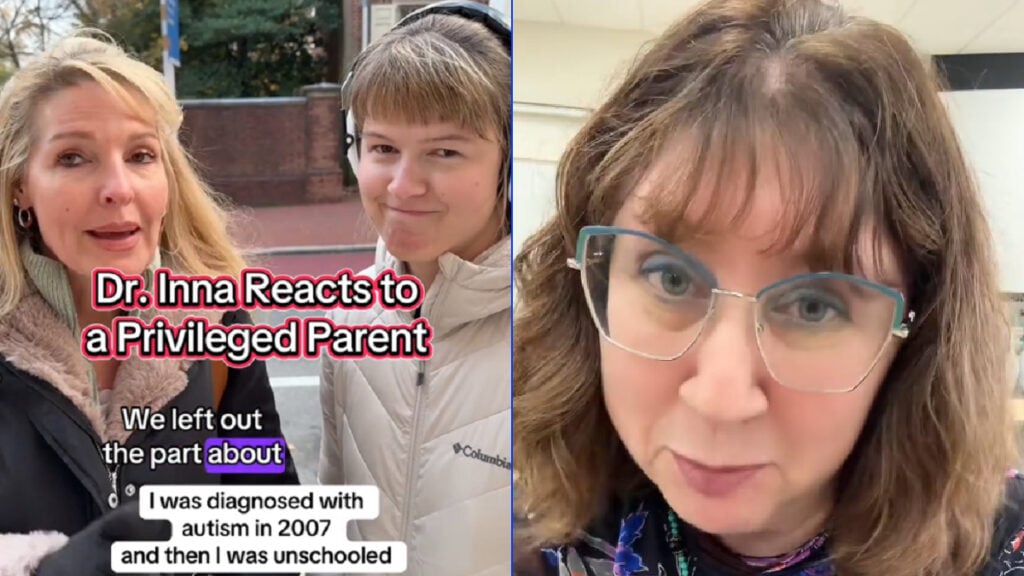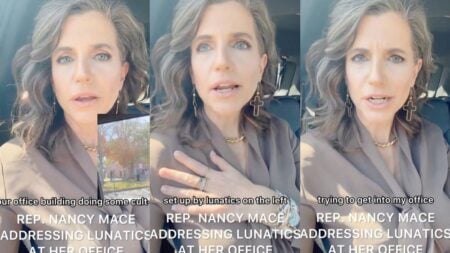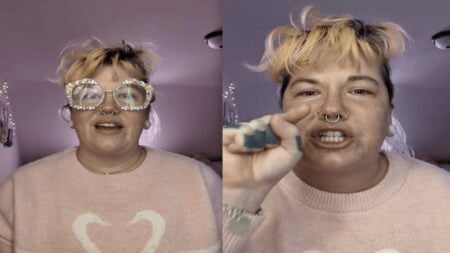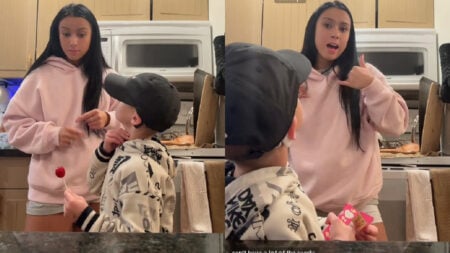Love on the Spectrum’s own Kaelynn Partlow is now an author and an influence on many in the autistic community. However, she’s been scrutinized for “mocking” people on the spectrum. The author from South Carolina has also been called out for mispronouncing the names of people of color, for example. It’s safe to say that Kaelynn and her mom, who frequently post on TikTok, may be a little out of touch at times, particularly when it comes to Anne Frank’s history.
Dr. Inna Kanevsky recently posted a TikTok video about Kaelynn and her mother. In the video, Kaelynn and her mom just returned from visiting the Holocaust Museum. When Kaelynn’s mom was schooling her, she allegedly “left out the part about how Anne Frank died,” to which Kaelynn followed up by confirming, “I thought Anne Frank survived.”
But she quite literally died after being transferred to a concentration camp right before British liberation. The conditions of the camp were horrific, and the only reason she was there in the first place was because of a Nazi raid brought on by an anonymous tip.
“This is not an amusing anecdote,” Dr. Inna says. She then argues it’s privileged of Kaelynn’s mom to leave that information out. Perhaps it came from a good place—death is scary, and homicide even more so—but leaving essential facts out to “protect” a child doesn’t do Anne’s memory any justice. You don’t have to share gruesome details, but honesty is important.
Unfortunately, Kaelynn’s mother tries to justify her decision by saying it’s “what good mothers do” to protect “their children’s feelings.” But what that results in is someone who isn’t equipped with all the correct information. That’s more important now than ever, given the number of uninformed voters in America.
And let’s not stray from the fact that Kaelynn’s mother kept this information from her for a while. “The infantilization is insane,” one commenter pointed out.
A commenter alleging they were a teacher weighed in too, stating, “As a neurodivergent teacher of other neurodivergent students, part of my responsibility was to learn how to regulate my emotions and therefore mirror to my students how to regulate their own. When they get big feelings about real life history, I show them how to work through them in real time. I would never dream of lying to them about what’s actually happened in the world. Be the adult in the room, show them feelings aren’t scary.”
Showing children how to work through their feelings properly can make a big difference, according to APA. Apparently, not everyone got that memo.








